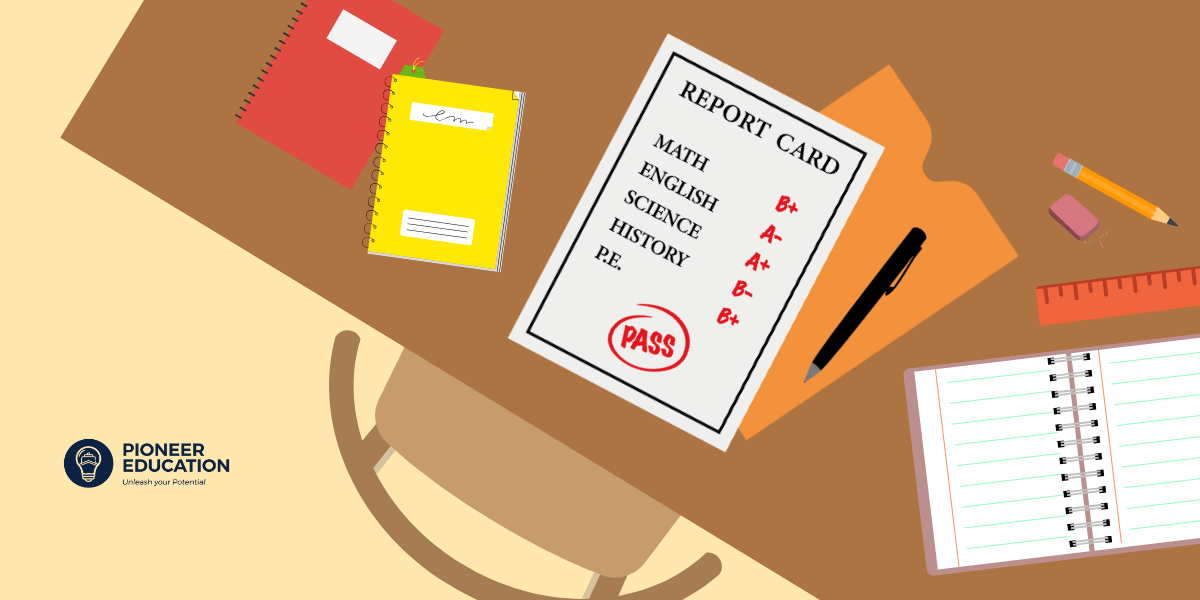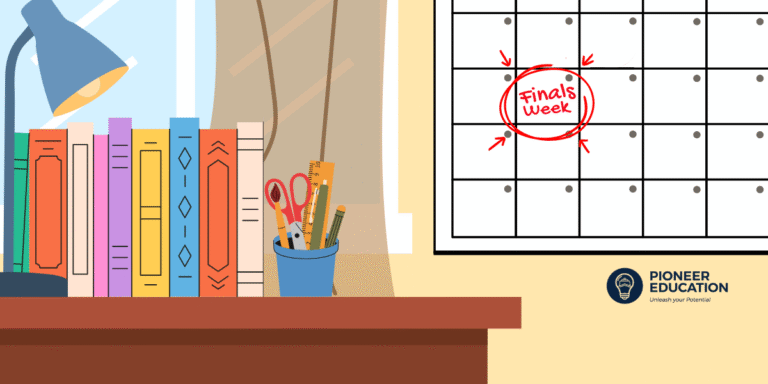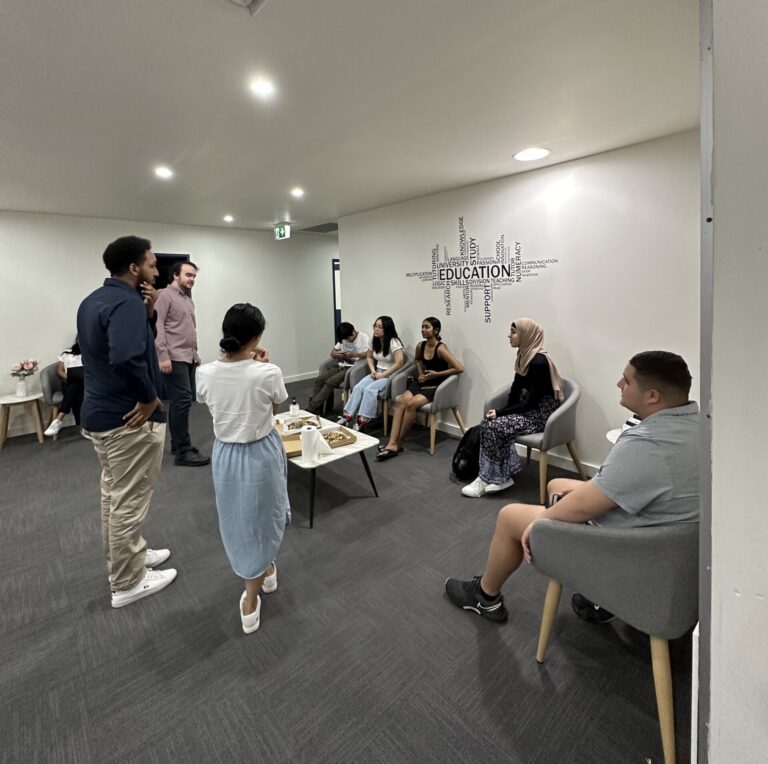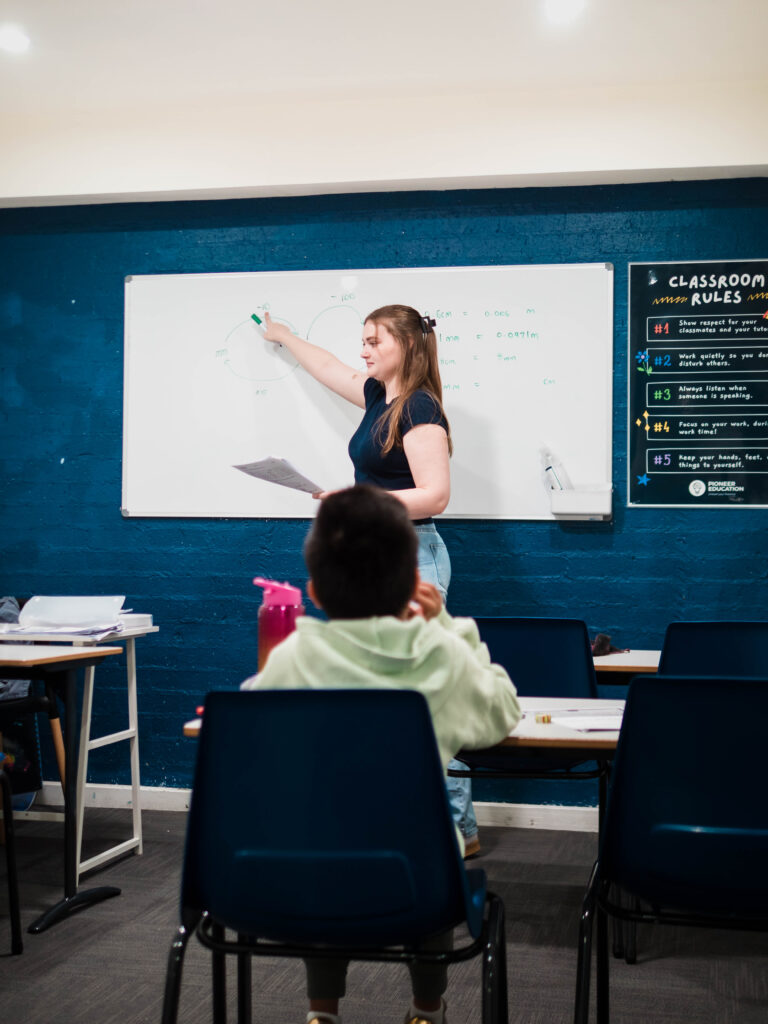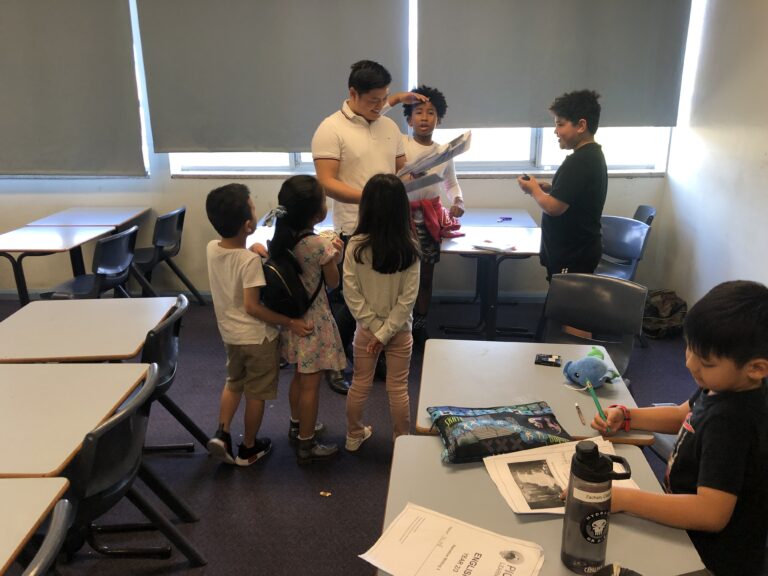When the Number Isn’t Enough: Why Report Cards Don’t Tell the Whole Story
Introduction
At the end of each term, many families receive that familiar slip of paper: the report card. For students and parents alike, it often feels like a definitive snapshot of progress and achievement. At Pioneer Education, however, we know that while report cards have value, they don’t tell the whole story. Especially when our mission is to help students aged 6‑18 develop not just high marks—but a genuine love of learning and the habits of success—they must not be judged solely by a grade on a piece of paper. In this blog we’ll explore why report cards are meaningful but limited, what they often leave out, and how families and students can see beyond the numbers to the deeper indicators of growth.
Report cards measure what’s easiest to quantify
Many report cards focus on grades, numerical scores or “achievement levels”.
These metrics are appealing because they are easy to record, compare and communicate. But researchers have long pointed out that such scores are only one dimension of learning: “while most teachers concede that report cards don’t tell the whole story about a student’s abilities, work habits and intelligence.”
For example, a student might receive an A in a subject yet still struggle with time‑management, or they might receive a solid grade despite barely being challenged. The grade alone cannot reflect factors like effort, curiosity, resilience, self‑regulation or the complexity of what the student achieved.
They often miss the process behind the result
What a grade shows is often the end point—but not how the student got there.
Consider two students: both receive 90% in a test. One studied five nights, did practise questions, asked for feedback and refined their work; the other crammed the night before, memorised rather than understood, and barely slept. The report card may list 90% for both, but the future potential, the habits and the understanding differ greatly. As one commentary puts it: “A mere letter is not enough to fully capture the learning process of a student.”
At Pioneer Education, our small classes and 1‑on‑1 tutoring emphasise how students learn, not just what score they get—because building the right habits and mindset leads to sustainable success.
Personal, social and learning‑skills dimensions are overlooked
Report cards typically cover academic achievement; less often they capture broader skills.
Things like collaboration, critical thinking, creativity, perseverance, and metacognition (thinking about one’s thinking) are vital for high performance—especially when aiming for +90 ATAR or beyond. These skills are harder to grade numerically and therefore rarely make the report card. The organisation of learning, the willingness to ask questions, the responsiveness to feedback—these matter. Research has shown that relying solely on test scores or grades constrains our understanding of actual student performance.
At our centre, we work to develop these habits—so parents and students know we are investing in more than just the next grade.
Context matters—but it’s often unseen
A grade does not inherently reflect the full context behind it.
For example:
Did the student miss school due to illness?
Did they have additional responsibilities or distractions at home?
Was the course more advanced than average?
A strong grade in a less‑demanding class might not mean the student is reaching their full potential; similarly, a lower grade may hide strong effort and much growth. Educational commentary notes that parents often believe “their child is at or above grade level” based only on report card grades—yet the full picture may differ.
At Pioneer Education we take time to understand the individual circumstances of each student and ensure parents do too.
Use the report card as a launchpad, not a verdict
While report cards are not the full story, they do serve an important role.
They provide a benchmark—a moment of reflection and a chance to talk about learning. The key is what happens after:
Are the grades prompting discussion?
Are they leading to action?
Are students and parents reflecting on what worked and what didn’t?
As advised by educational guides:
“Use the report card as a point of discussion … don’t assume A’s reflect a student’s best efforts … look at your child’s work.”
At Pioneer Education, we encourage this reflective approach: using the report card to springboard conversations about effort, strategy, revision, and next‑level growth.
Conclusion
In the journey toward academic excellence, especially for families seeking high outcomes in Years 6‑12, it’s essential to look beyond the letter grade. Report cards have value—they summarise achievement at a point in time—but they don’t capture the full story of how a student learns, grows or succeeds. At Pioneer Education, we believe in nurturing the whole learner: developing strong work habits, a love of learning, resilience, curiosity and the mindset to aim for +90 ATAR and beyond. If you’re ready to join a tutoring environment where your child’s full story matters—not just the report card—why not try one of our small‑group classes or 1‑on‑1 sessions? Let’s work together to build lasting success and ensure your child’s story is rich, not just graded. Contact us today.

